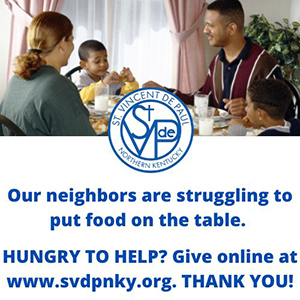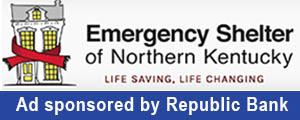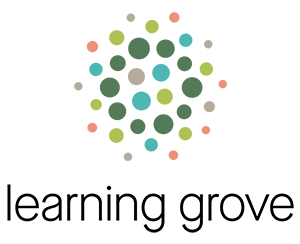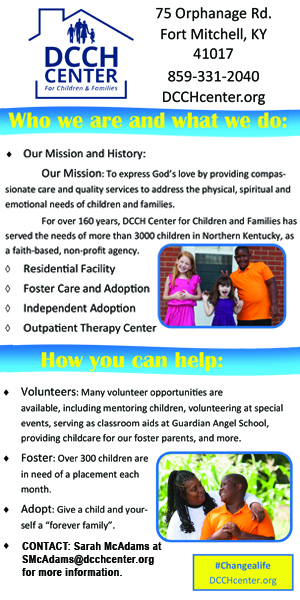By Maridith Yahl
NKyTribune reporter
Nestled on top of a hill in tranquil Devou Park, Children’s Home of Northern Kentucky (CHNK) overlooks Covington, Cincinnati, and the iconic blue Roebling Suspension Bridge. Amos Shinkle, a prominent businessman in Covington, was a major force in getting the bridge built and in founding CHNK.
CHNK began in 1882 when Amos and Sarah Shinkle saw a need for a home for orphans. The orphanage continued up to the 1980s when federal and state programs began to change.
Rick Wurth, Chief Executive Officer, said, “Sadly, there was a growing need to take care of kids who were removed from their family of origin because of abuse and neglect. These kids are in state’s custody,” so CHNK obtained licenses to offer therapeutic residential care to them.
Today, residential treatment continues to be a major part of Children’s Home of Northern Kentucky, but times again have changed. There has been a shift in need, leading CHNK through an evolution in care so dramatic, that it is one of the finest examples of how an organization truly embraces the needs of a community, despite costs, to adapt and better serve.
2015 brought the former orphanage into a transformation as a modern-day healthcare provider. There is now a second division of care, Outpatient Care.
Wurth, whose compassion and empathy for the clients is truly heartfelt, illustrates, “Our circle of relevancy in the community grows astronomically. And what I mean by that is, our work has always been important, always, but the circle of relevancy has not always been so wide.”
Now, CHNK offers Psychiatric Residential Treatment for boys, aged 8-17, with mental or addiction issues. It is a critical need, and CHNK Behavioral Health is the only provider in Northern Kentucky.
Offering a variety of new, outpatient services have been CHNK’s largest area of growth. Behavioral healthcare, mental healthcare, and addiction treatment outpatient services are available to children and adults.
“Last year we served more clients, impacted more of their family members than in any previous year in this home’s history,” said Wurth.
Serving both children and adults is a must for CHNK Behavioral Health, “because we know that if our goal is to truly have an impact on a family’s well-being,” says Wurth, the entire family must be served.
“If we really want to be a community leader, we have to have radical new ways of approaching family issues. We can be great at serving kids, but if we don’t have a plan in place to serve parents, where there’s an imminent risk that a child could be removed, we’re not really addressing the problem.”
This well-rounded approach serves children, parents, grandparents, guardians, or even young adult college students who have mental health barriers, addiction issues, or behaviors which negatively impact life.
CHNK navigates clients through their variety of programs to find the best in pursuit of health and wellness.
As a nonprofit, CHNK has “vested interest in helping the person with the fewest resources,” declares Wurth. He shares how in 1882 the Home was founded without tax dollars, only private donations, “because Northern Kentuckians saw a need and personally responded to it. They took ownership, using their own gifts and their own resources.”
“The truth of the matter is the treatment services that we offer are extremely needed, they’re critical, but the payer sources do not pay for the true and accurate cost of care,” said Wurth. “That’s why it’s so important to have the community to step up to the plate. There are those who are very vulnerable among us who struggle with poverty, with struggling to put food on the table, and many times they don’t have the resources.”
These are the clients Children’s Home of Northern Kentucky serves.
“Our hope,” Wurth expresses, “is that those same generous donors will continue these critical services into the future. It’s simple and accurate to say that CHNK would not be here if it were not for private donors giving of their own resources to make this institution happen.”
All non-profits need those critical dollars to provide care but volunteers are just as essential to prosperity. From making birthday cakes to collecting toiletries for the residential kids to putting up a CHNK Giving Tree, there is no talent CHNK could not use. CHNK needs hundreds of different types of abilities.
For more information explore the CHNK website to find your niche.
CHNK Behavioral Health has “tons of future goals but none will come true unless the community decides they want to partner in their mission,” Wurth says. The increase in serving the community in non-residential programs naturally leads to wanting to increase CHNK’s presence in the community. Behavioral healthcare hubs close to home is a major part of CHNK’s strategic plan.
“Our goal is to build bridges to better futures,” Wurth said.
Wurth loves the architecture of the Suspension Bridge and shares the most beautiful analogy of it to CHNK. Beginning with the cables which connect the piers, Wurth notes there’s not just one but many, bound together tight and strong.
This creates an image for Wurth of his employees, trustees, and volunteers.
“They have become like the cables of the suspension bridge,” Wurth says. “They have bound themselves together so tightly that great things are able to be accomplished. This Children’s Home itself becomes a bridge then, to a better future to the nearly 3,000 family members and clients that were here last year alone.”
What imagery for such a vital organization.
Contact the Northern Kentucky Tribune at news@nkytrib.com






















